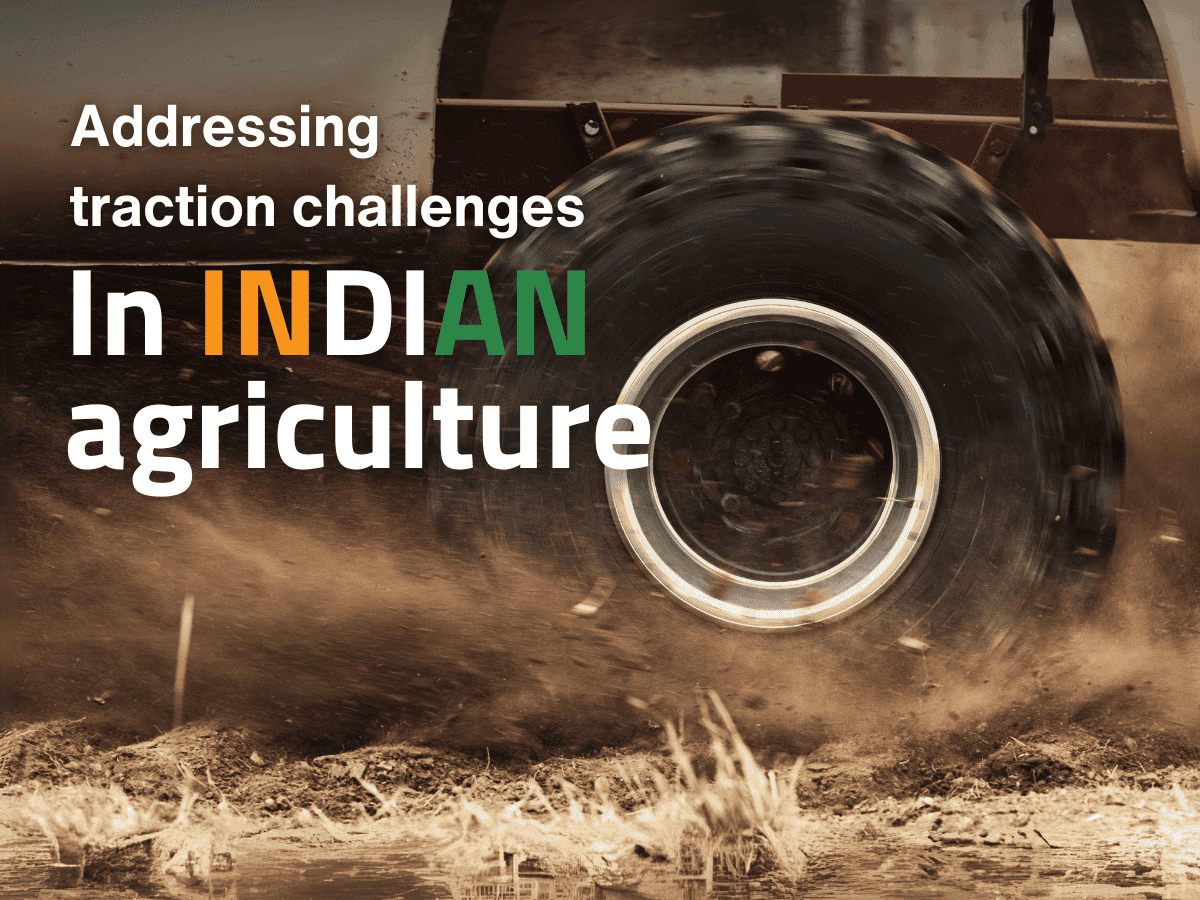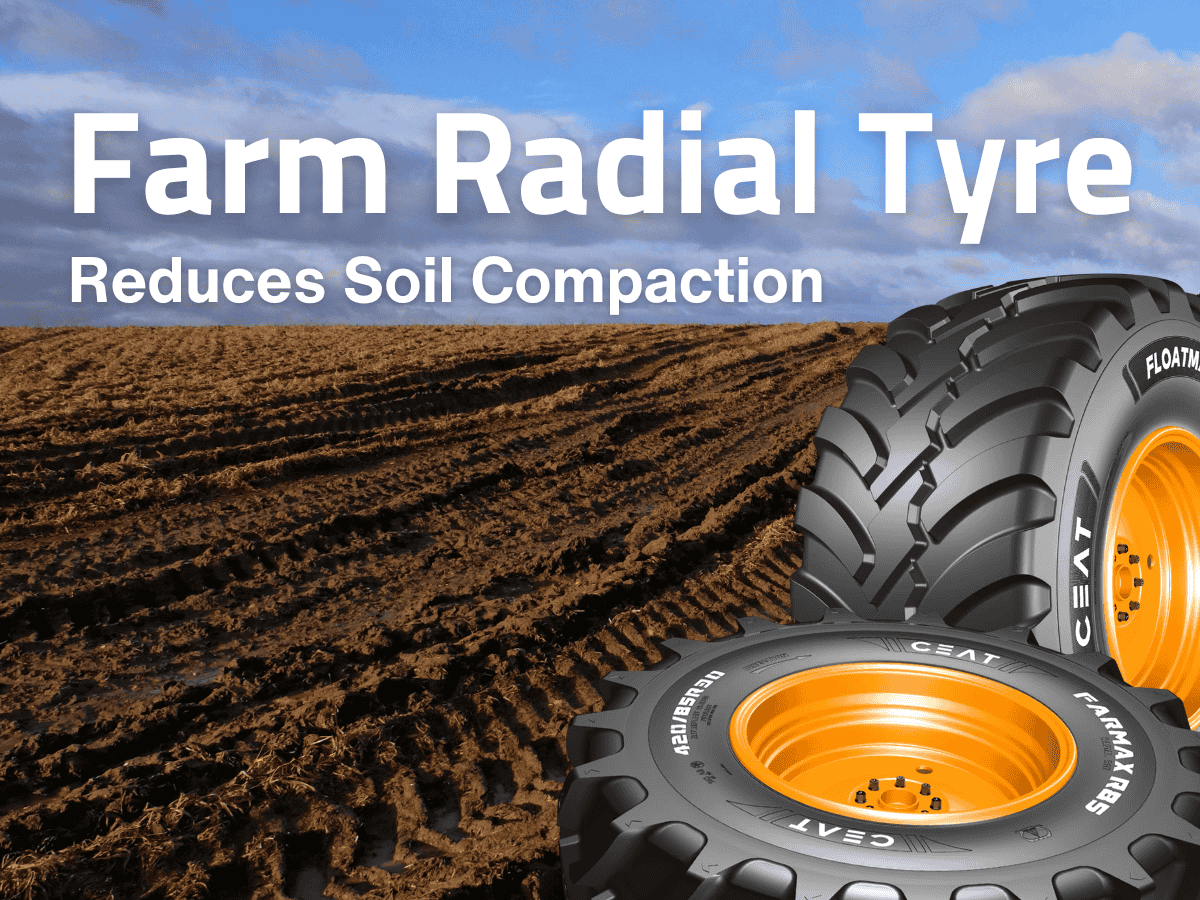ceat-speciality:blogs-tags/all,ceat-speciality:blogs-tags/ctr
Top farm tyre maintenance tips for optimal Compaction, Traction & Roadability
Wed, 4 Sep 2024 | PRODUCTS
Farm tyres are pivotal in ensuring the efficiency, productivity, and soil health of agricultural operations. Proper maintenance is crucial to maximising their performance and ensuring they deliver on the three key metrics: Compaction, Traction, and Roadability (CTR).
Compaction
By maintaining your farm tyres in optimal condition, you can minimise compaction and preserve the integrity of your soil.
- Regular Tyre Inspections
Regular inspections of your farm tyres are crucial for identifying and addressing compaction-related issues. Underinflated tyres can increase compaction due to the larger contact area with the ground. Regularly check tyre pressure using a calibrated gauge and ensure it's within the recommended range. While overinflation may not directly cause compaction, it can lead to uneven wear, which can contribute to compaction issues in the long run.
If you notice uneven wear patterns, it could indicate underlying issues, such as misalignment or tyre pressure imbalances, which can contribute to compaction. Excessive wear on the outer edges or centre of the tyre can indicate that the tyre is underinflated or overinflated, respectively. Bulging can indicate internal damage caused by compaction or other factors. Inspect the sidewalls and tread for any signs of damage that could lead to air leaks or punctures.
- Rotate Tyres Regularly
Regular tyre rotation is a crucial aspect of farm tyre maintenance. Rotating tyres helps to distribute the weight of your tractor more evenly, preventing excessive wear on specific areas of the tyres. Even wear extends the lifespan of your tyres, reducing the need for frequent replacements and saving you money.
Refer to your tractor's owner's manual or the tyre manufacturer's guidelines for the recommended rotation schedule. Generally, tyres should be rotated every 5,000 to 8,000 miles or more frequently if you haul heavy loads or operate in harsh conditions. (Source: Consumer Reports)
Traction: The Key to Productivity
Traction is essential for navigating diverse field conditions and ensuring efficient operations. Proper tyre maintenance is crucial for maintaining traction and preventing slippage. Tread depth is critical in ensuring optimal performance and safety in farm tyres. Adequate tread depth provides essential traction, especially in challenging conditions such as wet, muddy, or snowy terrain.
The recommended tread depth for farm tyres varies depending on the specific application and local regulations. However, a general guideline is to replace tyres when the tread depth reaches 3/32 inches (4/8 mm). By ensuring that your farm tyres have adequate tread depth, you can enhance safety, improve traction, and extend their lifespan.
Roadability: Enhancing Efficiency and Comfort
Roadability is a critical factor for farm operations that involve road travel. Well-maintained agriculture tyres offer a smoother ride, reduce fuel consumption, and enhance efficiency.
Proper wheel alignment is essential for ensuring even tyre wear, improving handling, and maximising the lifespan of your farm tyres. When wheels are misaligned, the tyres can experience uneven wear, leading to several problems.
Uneven wear can compromise traction, making navigating challenging terrain and maintaining control of your equipment more difficult. It can also cause tyres to wear out more quickly, increasing the need for frequent replacements. Misaligned tyres can increase rolling resistance, leading to higher fuel consumption. Uneven wear can contribute to a rougher ride, affecting operator comfort and potentially damaging equipment.
To ensure proper wheel alignment, it is recommended that your tyres be inspected by a qualified technician at regular intervals. They can use specialised equipment to measure the alignment and make necessary adjustments. Proper wheel alignment can improve your farm tyres' performance, safety, and longevity.
By following these maintenance tips, you can optimise the performance of your farm tyres and ensure they deliver on the three key metrics of Compaction, Traction, and Roadability. This will ultimately lead to improved productivity, reduced operating costs, and a healthier farming environment.







